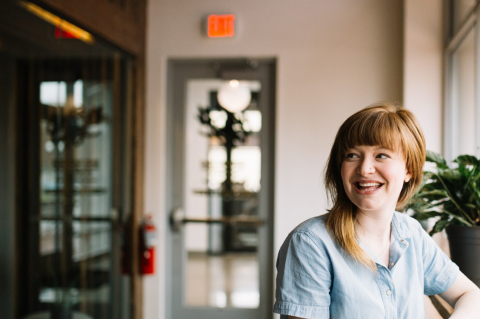Recovery is more than just maintaining sobriety or abstaining from problematic use. Recovery encompasses all aspects of one’s life – mind, body, spirit, community and all that exists in between. With this, transforming each aspect of your life to support your recovery is crucial to your long-term success. Often being new in recovery means discovering an entirely new way of experiencing life, and finding healthy habits and activities that align with your recovery. As this can be overwhelming to someone who is early on in their recovery, Peer Professionals can offer immense value during this stage.
Peer Professionals walk alongside individuals in recovery and deliver valuable non-clinical care that assists clients in achieving long-term recovery. Peer Professionals can offer various services to clients, including emotional, social and health-related support. In this post, we’ll give you various activities you can do with clients today that support your clients in all aspects of recovery. Keep reading to hear some of our favorite ways to offer Peer support!
Why are Recovery Activities Important?
Recovery activities are any activities that support an individual in their abstinence from problematic substance use. While recovery meetings like NA and AA are top of mind, social events, exercise and so much more can also be defined as recovery activities. Incorporating enjoyable activities into your day-to-day life can help you to experience less stress, maintain a positive outlook, and offer a sense of meaning in life. Developing a well-rounded life is key to your success, and Peer Professionals are here to show you the ropes of what a flourishing life in recovery can look like. Keep reading to see some of our favorite activities for Peer Professionals and clients to do together!
7 Recovery Activities You Can Do With Clients Today
Take a Walk
Chat with your client about their recovery goals while taking in the beautiful sights on a scenic park walk! Spending time outside in nature can be therapeutic for many, fresh air and some sun giving a new meaning to client appointments.

Work on Their Recovery Wellness Plan
You should be consistently working on your client’s Recovery Wellness Plan with them. This ongoing plan will provide guidance to your clients along their journey, so check in consistently to keep it up-to-date!
Lift Some Weights
Physical activity is a powerful tool to utilize in recovery, specifically with supporting improved mental health outcomes. If your client enjoys hitting the gym, join them and discuss the importance of exercise along their recovery journey.

Attend a Local Recovery Event
Meeting new people in recovery is another critical way to support sustained recovery. Having people around you who are in alignment with your recovery can not only support you, but is also an incredible way to start having fun! Re-entering social situations that you feel comfortable with is an important piece of redefining your new life.
Tag Along to a Recovery Meeting
Recovery meetings, like AA and NA, have proven to be incredibly beneficial to many in recovery. While this is true, it still proves to be a difficult task to attend a recovery meeting fresh into recovery. Having someone by your side can make all the difference, so offer it up as a support option to clients.
Have Consistent Check-Ins
Make sure to regularly check in with your clients. Whether that is a one-on-one appointment discussing their recovery plan, or assisting them in accessing food shelf resources. Life moves quickly, and staying connected with your clients is critical.
Do a Deep Dive on Resources
One of the most important values you provide to your clients is offering access to resources. From financial to housing, you are equipped with the resources that can help transform your clients’ lives. Do a deep dive on your existing resources, and seek out some more! This will not only provide your clients with access to more support options, but can show by example how to find usable resources.
Get Creative With It!
Like every individual in recovery is unique, so are their support needs. Uncovering each client’s individual interests is one of the most engaging parts of your role as a Peer Professional. Learn what they enjoy, and find joy in that activity alongside them. Any activity can incorporate recovery themes, so don’t be afraid to think outside the box on what activities you can take part in together. Try out some of the activities above, or come up with your own – just be sure to center your appointment on a learning opportunity around recovery!
Want to Learn More About Working as a Peer Professional?
At Kyros we deliver the highest quality of care to clients, and therefore expect a level of professionalism and quality standard from Peers. Learn a bit more about what professionalism looks like in the Peer Professional role here!





